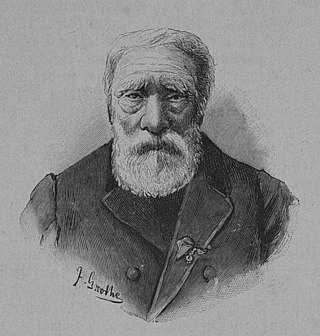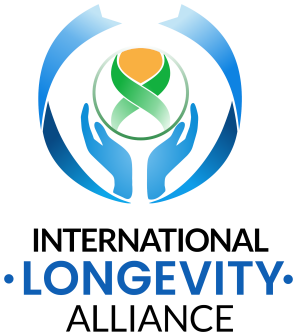| Founded | 2014 |
|---|---|
| Founders | Keith Comito, Oliver Medvedik, Richard Kaufman, Apneet Jolly |
| Type | 501(c)(3) |
| Focus | Life extension |
| Location | |
Area served | Global |
| Method | News outlet, scientific conferences, crowdfunding platform |
| Website | www |
The Lifespan Extension Advocacy Foundation (LEAF) is a non-profit organization with mission to support fundamental research on the main mechanisms of aging and age-related diseases and educate the public on the possibility of bringing aging under medical control in order to prevent, postpone and cure age-related diseases. It was founded in 2014 and is based in New York City, New York, USA.
Its activities include a news outlet covering aging research, [1] an annual scientific conference on aging in New York City, [2] [3] and the non-profit crowdfunding platform Lifespan.io. [4] As of 2020, the platform has hosted eight successful campaigns, including three research projects by SENS Research Foundation.
LEAF established its news outlet in 2016 with the goal of educating the public on the progress in aging and longevity research. As of 2020, it contains over 900 news articles, including over 90 interviews with aging and rejuvenation researchers, such as Aubrey de Grey, Judith Campisi, Brian Kennedy, Steve Horvath, David Sinclair, and Gregory Fahy.
In 2018, LEAF interviewed the Russian geriatrician Valery Novoselov on the questionable case of Jeanne Calment's exceptional longevity. [5]
Ending Age-Related Diseases: Investment Prospects and Advances in Research (EARD) is an annual scientific conference hosted by LEAF in New York City in the summer. It is focused on biomarkers of aging, fundamental studies on aging, the development of rejuvenation therapies for humans, and investment and regulatory aspects of the longevity industry. [6] [7]
LEAF's non-profit crowdfunding platform Lifespan.io is dedicated to supporting fundamental and early-stage studies on aging. As of 2020, [update] it helped to collect over $390,000 in support of eight research projects, including three projects by SENS Research Foundation - OncoSENS, MitoSENS [8] and MitoMouse.
LEAF maintains a variety of outreach activities. Members of the organizations give talks at scientific and public events, appear on television, [9] and give press interviews. [10] [11] [12] In 2017 and 2018, as a part of its outreach activities, LEAF provided scientific advice to help the YouTube channels Kurzgesagt, Life Noggin, and CGP Grey create educational popular science videos about biological aging and the potential of regenerative medicine. [13] [14] [15]

Life extension is the concept of extending the human lifespan, either modestly through improvements in medicine or dramatically by increasing the maximum lifespan beyond its generally-settled biological limit of around 125 years. Several researchers in the area, along with "life extensionists", "immortalists", or "longevists", postulate that future breakthroughs in tissue rejuvenation, stem cells, regenerative medicine, molecular repair, gene therapy, pharmaceuticals, and organ replacement will eventually enable humans to have indefinite lifespans through complete rejuvenation to a healthy youthful condition (agerasia). The ethical ramifications, if life extension becomes a possibility, are debated by bioethicists.

Longevity may refer to especially long-lived members of a population, whereas life expectancy is defined statistically as the average number of years remaining at a given age. For example, a population's life expectancy at birth is the same as the average age at death for all people born in the same year.

Jeanne Louise Calment was a French supercentenarian and, with a documented lifespan of 122 years and 164 days, the oldest person ever whose age has been verified. Her longevity attracted media attention and medical studies of her health and lifestyle. She is the only person who has been verified to have reached the age of 120.

Aubrey David Nicholas Jasper de Grey is an English biomedical gerontologist. He is the author of The Mitochondrial Free Radical Theory of Aging (1999) and co-author of Ending Aging (2007). De Grey is known for his view that medical technology may enable human beings alive today not to die from age-related causes. As an amateur mathematician, he has contributed to the study of the Hadwiger–Nelson problem in geometric graph theory, making the first progress on the problem in over 60 years.
Biological immortality is a state in which the rate of mortality from senescence is stable or decreasing, thus decoupling it from chronological age. Various unicellular and multicellular species, including some vertebrates, achieve this state either throughout their existence or after living long enough. A biologically immortal living being can still die from means other than senescence, such as through injury, poison, disease, predation, lack of available resources, or changes to environment.
Strategies for engineered negligible senescence (SENS) is a range of proposed regenerative medical therapies, either planned or currently in development, for the periodic repair of all age-related damage to human tissue. These therapies have the ultimate aim of maintaining a state of negligible senescence in patients and postponing age-associated disease. SENS was first defined by British biogerontologist Aubrey de Grey. Many mainstream scientists believe that it is a fringe theory. De Grey later highlighted similarities and differences of SENS to subsequent categorization systems of the biology of aging, such as the highly influential Hallmarks of Aging published in 2013.
Following is a list of topics related to life extension:
The following outline is provided as an overview of and topical guide to life extension:

The Methuselah Foundation is an American-based global non-profit organization based in Springfield, Virginia, with a declared mission to "make 90 the new 50 by 2030" by supporting tissue engineering and regenerative medicine therapies. The organization was originally incorporated by David Gobel in 2001 as the Performance Prize Society, a name inspired by the British government’s Longitude Act, which offered monetary rewards for anyone who could devise a portable, practical solution for determining a ship's longitude.

David Gobel is an American philanthropist, entrepreneur, inventor, and futurist. He is co-founder and CEO of the Methuselah Foundation, CEO of the Methuselah Fund, and one of the first to publicly advance the idea of longevity escape velocity, even before this term was formulated.
Pro-aging trance, also known as pro-aging edifice, is a term coined by British author and biomedical gerontologist Aubrey de Grey to describe the broadly positive and fatalistic attitude toward aging in society.
The SENS Research Foundation is a non-profit organization that does research programs and public relations work for the application of regenerative medicine to aging. It was founded in 2009, located in Mountain View, California, US. The organization publishes its reports annually.

Negligible senescence is a term coined by biogerontologist Caleb Finch to denote organisms that do not exhibit evidence of biological aging (senescence), such as measurable reductions in their reproductive capability, measurable functional decline, or rising death rates with age. There are many species where scientists have seen no increase in mortality after maturity. This may mean that the lifespan of the organism is so long that researchers' subjects have not yet lived up to the time when a measure of the species' longevity can be made. Turtles, for example, were once thought to lack senescence, but more extensive observations have found evidence of decreasing fitness with age.
The anti-aging movement is a social movement devoted to eliminating or reversing aging, or reducing the effects of it. A substantial portion of the attention of the movement is on the possibilities for life extension, but there is also interest in techniques such as cosmetic surgery which ameliorate the effects of aging rather than delay or defeat it.

Jean-Baptiste Nicolas Savin was a French soldier and a claimed supercentenarian, although this cannot be verified. He claimed to be the last survivor of the French Revolutionary Wars of 1792–1802 and the last French officer of the Napoleonic Wars. After the defeat of Napoleon's Army, he settled in the Russian Empire.

Laura Deming is a venture capitalist whose work focuses on life extension, and using biological research to reduce or reverse the effects of aging.

Kurzgesagt is a German animation and design studio founded by Philipp Dettmer. The studio is best known for its YouTube channel, which focuses on minimalistic animated educational content using a flat and 3D design style. It discusses scientific, technological, political, philosophical, and psychological subjects.
Vadim N. Gladyshev is a professor of medicine at Brigham and Women's Hospital, Harvard Medical School, who specializes in antioxidant biology. He is known for his characterization of the human selenoproteome. He is also known for his work on the effects of aging in humans. He has conducted studies on whether organisms can acquire cellular damage from their food; the role selenium plays as a micro-nutrient with significant health benefits; In 2013 he won the NIH Pioneer Award.
This timeline lists notable events in the history of research into senescence or biological aging, including the research and development of life extension methods, brain aging delay methods and rejuvenation.

The International Longevity Alliance (ILA) is an international nonprofit organization that is a platform for interaction between regional organizations that support anti-aging technologies, usually at the administrative and popularization levels.